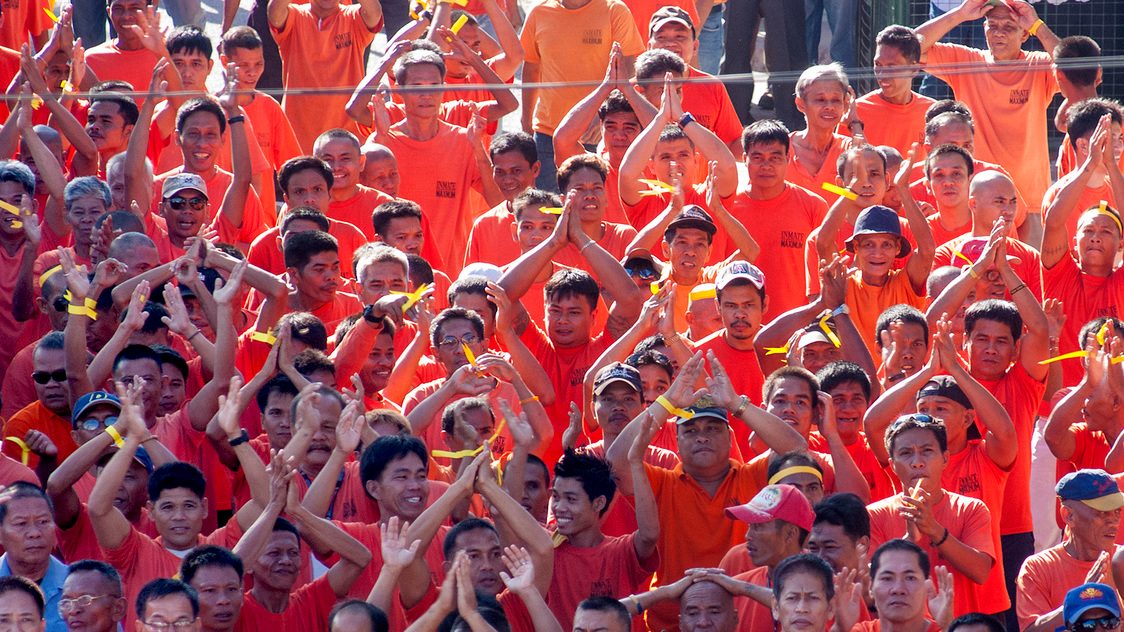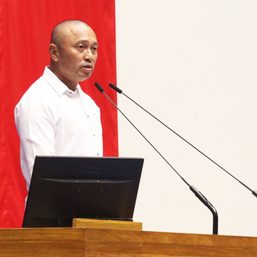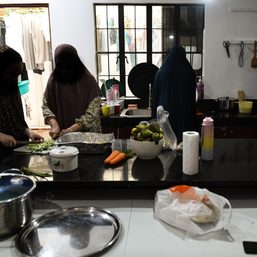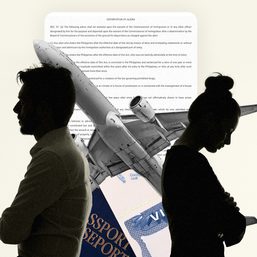SUMMARY
This is AI generated summarization, which may have errors. For context, always refer to the full article.

The Philippine justice department is yet to complete its single carpeta system project, the digitized and centralized database for prison records, which was among the basis for the United Nations Human Rights Council’s (UN HRC) going soft on the Duterte government.
Carpeta is a Spanish word for file, and is the operational jargon for the individual prisoner documents containing details of their cases and reports related to their imprisonment.
Corrections assistant secretary Gabriel Chaclag told the Senate on Wednesday, October 6, that they have yet to digitize the country’s prison records.
“Hindi pa po tapos sir (it’s not yet done), it’s an ongoing project,” Chaclag said during the Senate’s hearing on the 2022 budget of the Department of Justice (DOJ) and its attached agencies.
The single carpeta system is part of the envisioned National Justice Information System (NJIS) launched in January 2020. By having a centralized online portal, all concerned agencies will have access to prisoner data. The objective of the digitization is to expedite releases of prisoners and, hopefully, decongest jails.
The grand NJIS plan later became one of the basis of the UN HRC to water down its resolution on the Philippines, offering technical assistance only instead of recommending a stronger investigation into human rights abuses.
This limp resolution by the UN HRC was widely slammed by the international community. There emerged a call for the UN HRC to step up and potentially reinforce the ongoing investigation by the International Criminal Court (ICC) into killings related to both the drug war and the so-called Davao Death Squad.
The Philippines, through the DOJ, recently signed the UN Joint Human Rights Program which would operationalize that promised technical assistance, but Justice Undersecretary Adrian Sugay said “the NJIS is not mentioned in the UN Joint Program.”
But in the September 2020 resolution of the UN HRC, it said it recognized “the launch in January 2020 of the National Justice Information System aimed at improving the efficiency and transparency of criminal justice within the justice system.”
Board of Pardons and Parole chairman Sergio Calizo Jr told the Senate the delayed transmission of carpetas from the Bureau of Corrections (BuCor) significantly slowed down the decongestion efforts.
“Only very few carpetas are coming from the seven penal colonies from outside the New Bilibid Prison, so if we can just request that the carpetas be released to us in time, and we will be able to help in the decongestion of prisons,” said Calizo.
Calizo said sometimes the carpetas that reached them for evaluation were for prisoners who have already lapsed their minimum sentence by two to three years. Ideally, he said, they should be reviewing those records two to three years before the end of minimum sentence.
“Kawawa naman (I pity them), congested na nga, and because of the simple inability of the BuCor to send on time the carpetas,” said Senator Franklin Drilon.
GCTA mess
BuCor – in charge of the convicted prisoners – reached a congestion rate of 170% in 2018.
“Our agency has the capacity to review at least 1,000 carpetas a month, and out of 1,000, probably we will be able to decongest by 400 to 500 a month, the only problem is we do not get the carpeta from the BuCor on a timely manner,” said Calizo.
“Our office concerned in evaluating these carpetas have been doing its share and in fact, they are doing overtime to review all these papers, carpetas, and one of the reason is the GCTA issue, they have gone back to the start with all these carpetas,” said Chaclag.
GCTA stands for Good Conduct Time Allowance, a merit-based system of deducting days to reduce a sentence of a prisoner.
But when a convicted murderer and rapist, the late Antonio Sanchez, was granted GCTA in 2019 that slashed his sentence by half, President Rodrigo Duterte reacted by revising the GCTA law so that it does not cover heinous crime convicts. The constitutionality of this order has been questioned before the Supreme Court.
It also turned BuCor upside down because the DOJ pulled back to prison those already freed, resulting in deaths of returning prisoners who should have already earned their liberties.
The revised GCTA now has a layered and complicated system for heinous crime convicts. The DOJ is yet to ascertain the number of convicts who have been granted and released on GCTA since the Sanchez fiasco in 2019. – Rappler.com
Add a comment
How does this make you feel?





There are no comments yet. Add your comment to start the conversation.